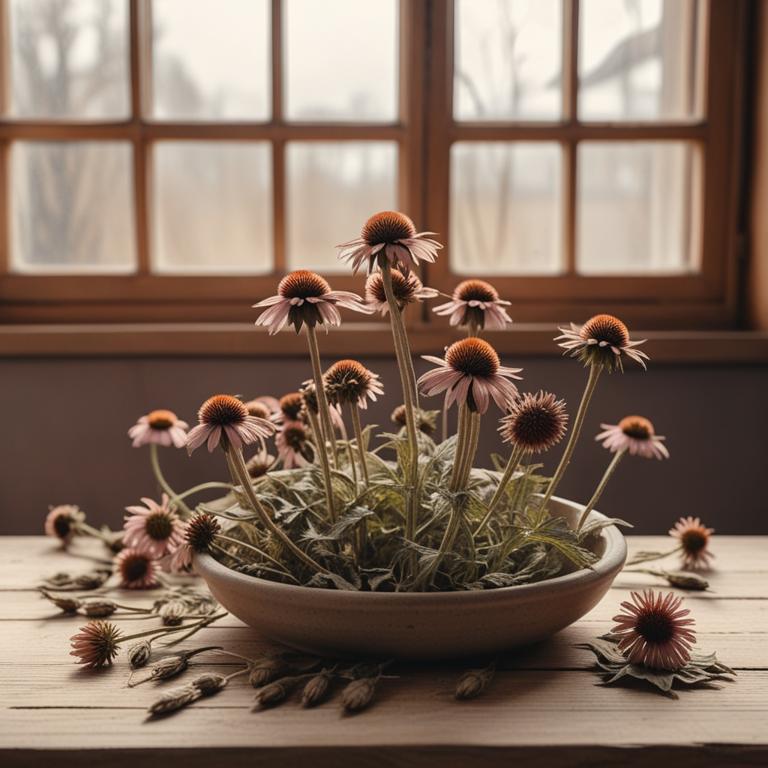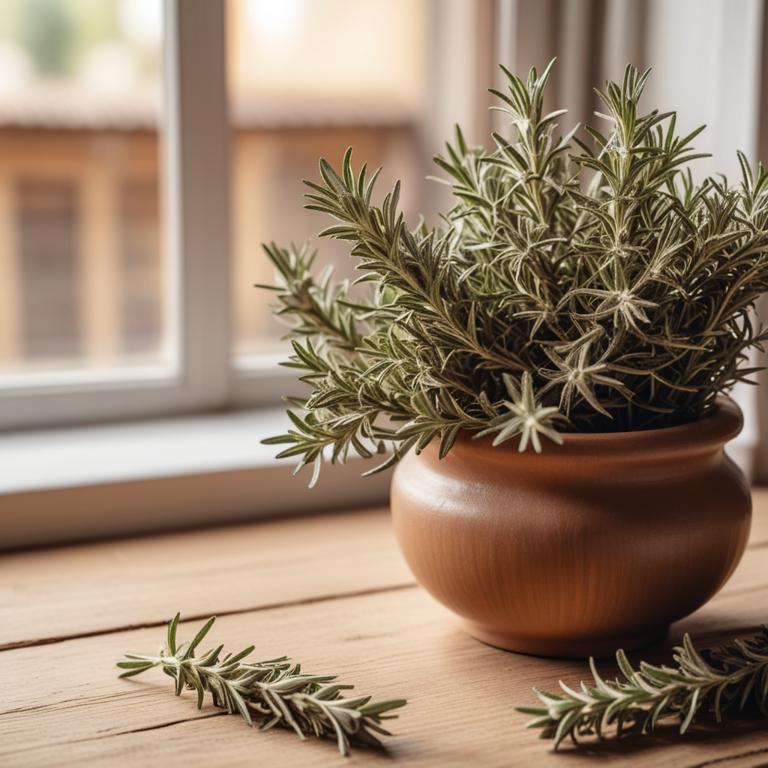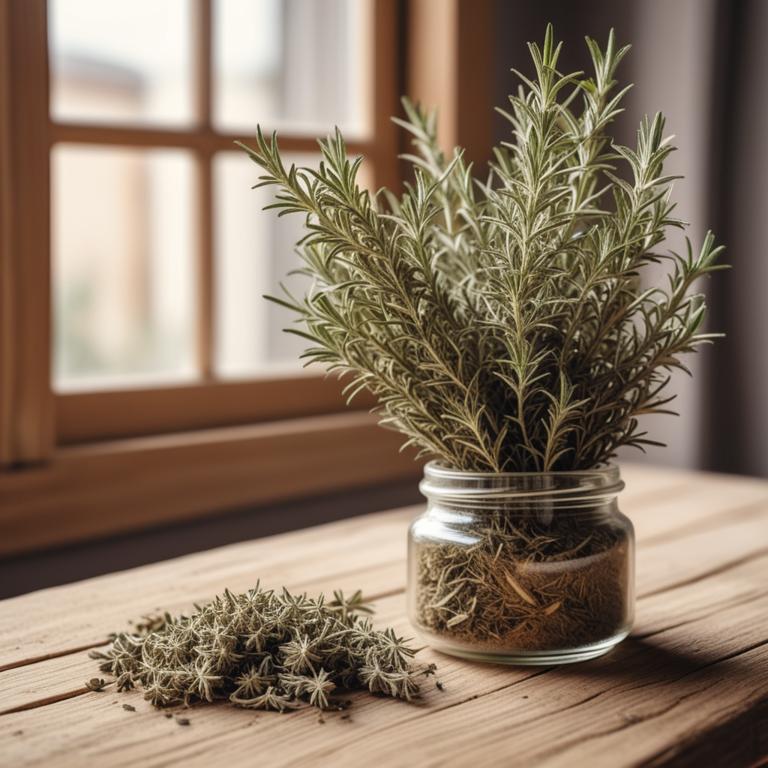Updated: Dec 1, 2024
Phlegm: Causes, Herbs, and Medicinal Preparations for Relief
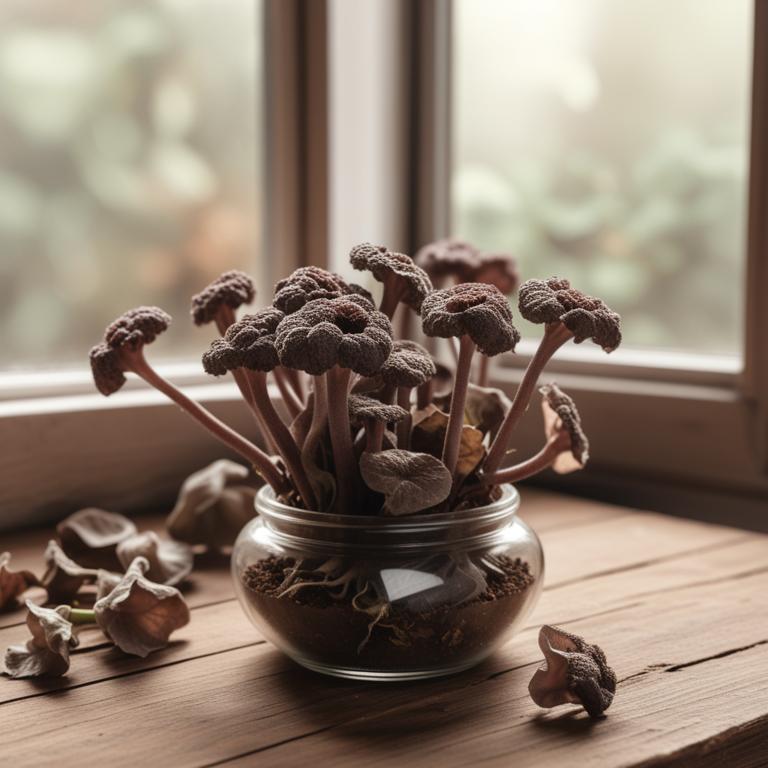
Phlegm is a thick, sticky substance produced by your body to trap germs and dust.
But too much phlegm can be a problem. It can make you feel like you're always coughing or sneezing, and it can even make it hard to breathe. When you have too much phlegm, it's usually because your body is fighting off an infection or allergy. Sometimes, it can also be caused by eating too much dairy or processed foods, or by not getting enough exercise.
Some herbs can help your body get rid of excess phlegm. Herbs like thyme, eucalyptus, and licorice root have natural expectorant properties, which means they help bring up mucus from your lungs. Ginger and turmeric are also good at reducing inflammation, which can help your body fight off infections. You can use these herbs in different ways to help your body get rid of phlegm. You can make a tea by steeping fresh thyme leaves in hot water, or by mixing dried eucalyptus leaves with honey and lemon.
You can also take licorice root in capsule form, or rub ginger and turmeric oil on your chest to help loosen up mucus.
Table of Contents
What causes the body to produce phlegm?
The main causes of phlegm are often related to respiratory issues.
Pneumonia is a significant cause, as it leads to inflammation in the lungs, causing the body to produce more mucus to trap bacteria and other foreign particles. Bronchitis is another cause, as it inflames the air passages in the lungs, resulting in the production of excess mucus to help clear out irritants.
Asthma is a common cause, as it involves the airways constricting and producing excess mucus in response to triggers like allergens or stress. Sinusitis, an infection or inflammation of the sinuses, also contributes to phlegm production, as the body tries to clear out bacteria or other irritants from the nasal passages and sinuses. Allergies, whether to pollen, dust, or other substances, can also cause the body to produce excess mucus, leading to phlegm.
In each of these cases, the body is trying to protect itself from foreign particles or irritants, leading to the production of phlegm to help clear out these invaders.
What are the advantages of using herbs to reduce phlegm?
Using herbs for phlegm can be really helpful.
They can thin out the mucus and make it easier to cough up, which is great for people who have trouble breathing. Some herbs can also reduce inflammation and swelling in the airways, making it more comfortable to breathe.
This can be especially helpful for people with conditions like bronchitis or asthma. Additionally, certain herbs can help to calm the body and mind, which can be beneficial when you're feeling stressed and congested. Some herbs may also have antimicrobial properties, which can help to prevent infections from taking hold.
By using these herbs, people may be able to manage their symptoms and feel better sooner.
What are the main medicinal plants for phlegm?

Herbs are a great way to help with phlegm because they have natural properties that can break down and clear out excess mucus.
Let's start with Zingiber officinale, or ginger, which has anti-inflammatory properties that can help reduce swelling in the throat and sinuses. This makes it easier to breathe and swallow. Eucalyptus globulus, or eucalyptus, has a decongestant effect that helps to thin out phlegm, making it easier to cough up.
Echinacea purpurea, or coneflower, is known for its immune-boosting properties, which can help fight off infections that cause phlegm to build up in the first place. Glycyrrhiza glabra, or licorice root, has anti-inflammatory and expectorant properties that can help bring up phlegm from the lungs and make it easier to expel. Thymus vulgaris, or thyme, has antibacterial properties that can help kill off bacteria that can contribute to phlegm buildup and infection.
All of these herbs work together to help break down and clear out phlegm, making it easier to breathe and feel better.
What are the most effective herbal treatments for phlegm?
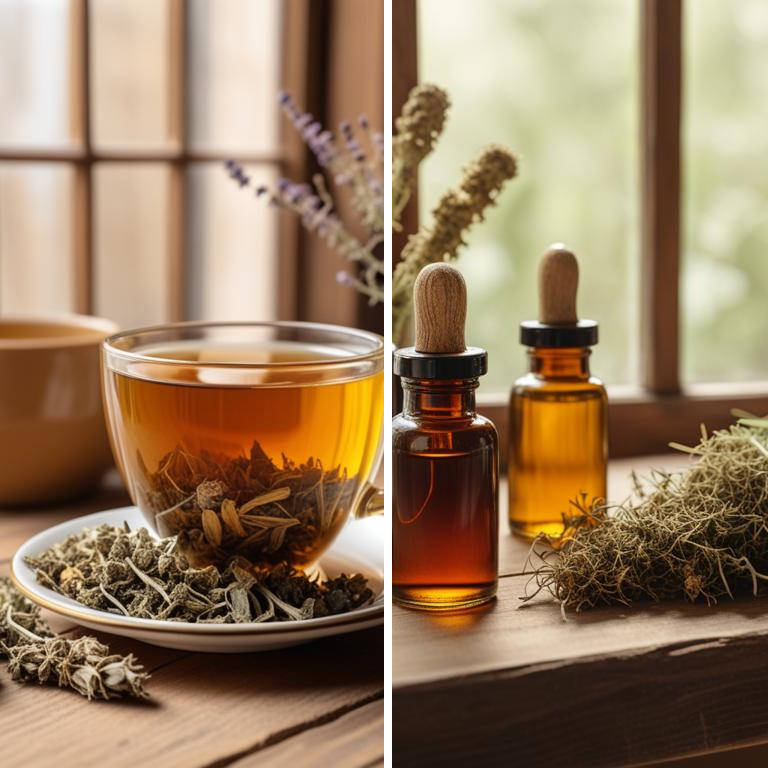
When it comes to dealing with phlegm, herbal preparations can be a great help.
One way to use herbs is through a decoction, which involves boiling them in water to release their active ingredients. This method is good for thick and stubborn phlegm because the long boiling time helps to break it down. Another way to use herbs is through an infusion, which is similar to a tea but uses cold water instead of hot. This method is good for people who don't like hot drinks or have sensitive stomachs. The cold water helps to preserve the delicate flavors and properties of the herbs. Herbal teas are also a popular way to use herbs for phlegm.
They work similarly to infusions but use hot water. This method is good for people who enjoy hot drinks and want to loosen up phlegm quickly. Herbal tinctures are liquid extracts of herbs that can be taken in small amounts. They are good for phlegm because they are easy to swallow and can be absorbed quickly by the body. This makes them a good choice for people who have trouble swallowing pills or capsules. Finally, herbal capsules are a convenient way to take herbs for phlegm. They contain dried herbs that have been powdered and filled into capsules, making it easy to take the right dose.
This method is good for people who prefer to take their herbs in a more traditional pill form or have trouble making herbal teas or infusions.
Additional Resources:
Which herbs should you steer clear of if you have phlegm?
If you have phlegm, it's a good idea to be careful with certain herbs.
Foeniculum vulgare, also known as fennel, can make phlegm worse because it's a natural expectorant. It helps bring up mucus from your lungs, which might sound like a good thing, but in your case, it could just make more phlegm come out. Rosmarinus officinalis, or rosemary, is another herb to use with caution. It can stimulate the body to produce more mucus, which isn't what you want if you already have a phlegmy problem.
Salvia miltiorrhiza, a Chinese herb, can also be a bit tricky. While it's often used to help with heart issues, it can also make your body produce more mucus. Verbascum thapsus, or mullein, might seem like a good choice because it's often used to help with respiratory issues, but if you have phlegm, it could just make things worse. Cinnamomum verum, or cinnamon, has warming properties, which can also stimulate your body to produce more mucus.
This means that using these herbs could make your phlegm worse, so it's best to avoid them or use them under the guidance of a healthcare professional.
FAQ
Are there any specific herbs that can prevent phlegm?
Ginger and thyme are herbs that may help reduce phlegm.
Ginger has natural anti-inflammatory properties, while thyme has decongestant properties that can help loosen and clear mucus from the airways. Drinking tea made with these herbs may provide some relief from congestion and coughing.
Some people find relief from phlegm by incorporating ginger and thyme into their diet.
Is it safe to use herbal remedies for phlegm during pregnancy?
If you're pregnant and want to try herbal remedies for phlegm, be cautious.
Some herbs, like thyme and eucalyptus, may help, but others, like comfrey and pennyroyal, can harm you or your baby.
Always check the ingredients and follow instructions carefully to avoid any potential risks.
Are there any herbs that can reduce the frequency of phlegm?
Some herbs like thyme and eucalyptus might help reduce the frequency of phlegm.
Thyme has been used to ease congestion and coughs, while eucalyptus oil has decongestant properties that can help loosen and clear mucus.
These herbs can be consumed as teas or added to warm baths for relief.
Can i combine different herbal remedies for phlegm?
You can try combining different herbal remedies for phlegm, but be cautious.
Some herbs, like thyme and eucalyptus, might complement each other, while others, like licorice root and juniper berries, may interact.
Research each herb separately, and start with small amounts to see how your body reacts.
Related Articles
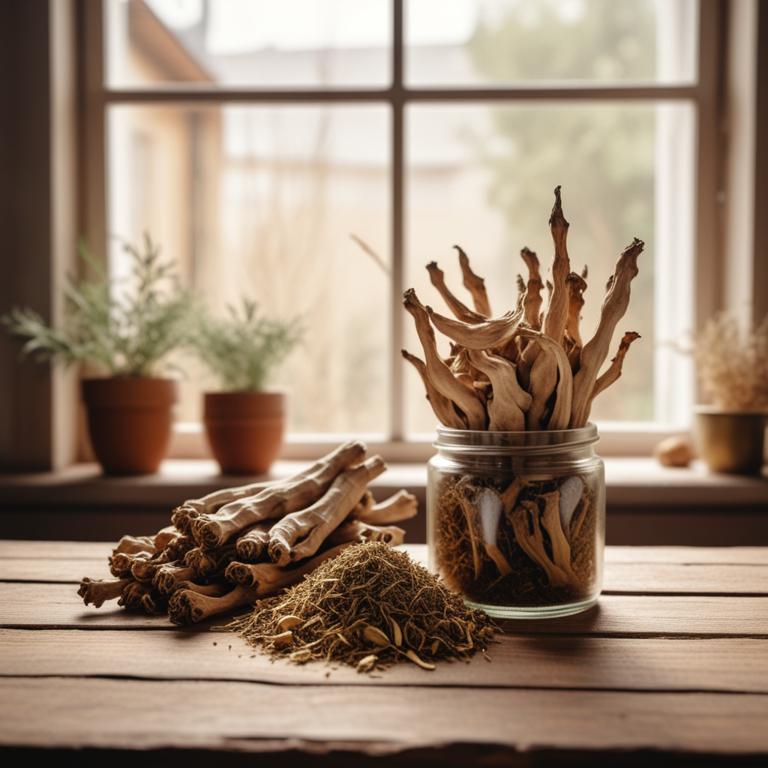
Understanding Chronic Bronchitis: Causes, Medicinal Herbs, and Herbal Remedies
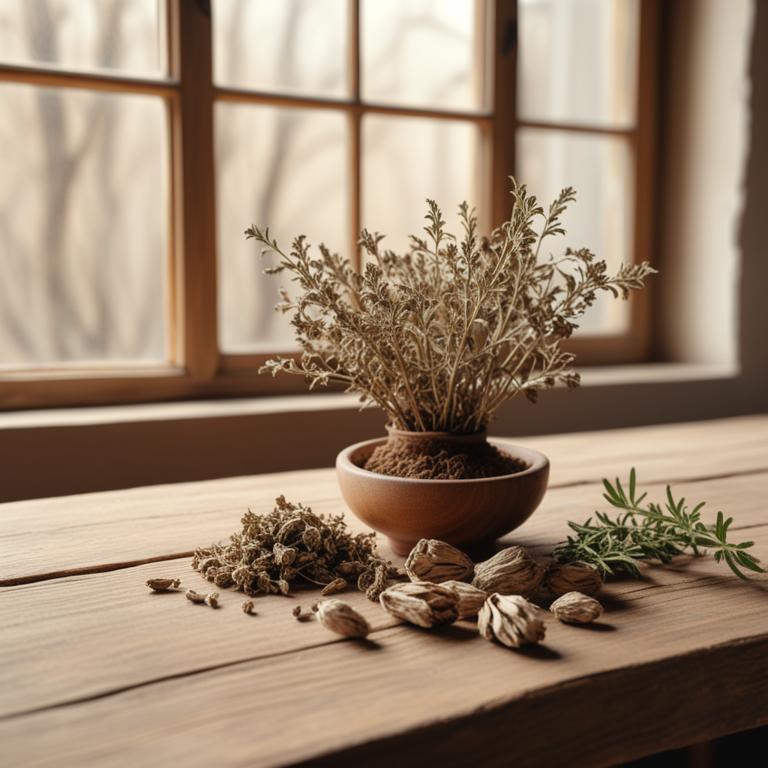
Sore Throat Causes, Herbal Cures, and Medicinal Plant Remedies
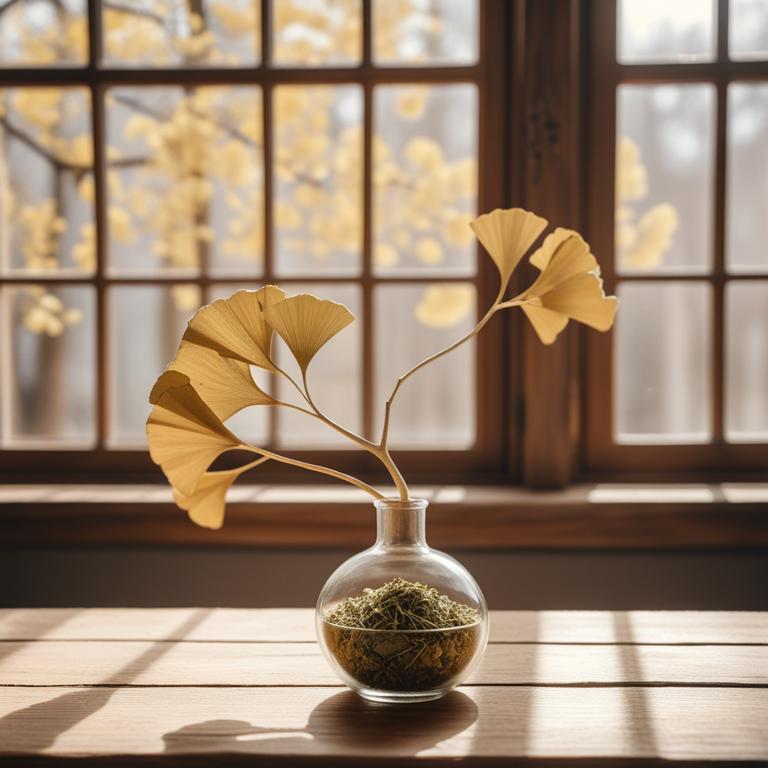
Altitude Sickness Prevention: Causes, Medicinal Herbs, and Natural Remedies
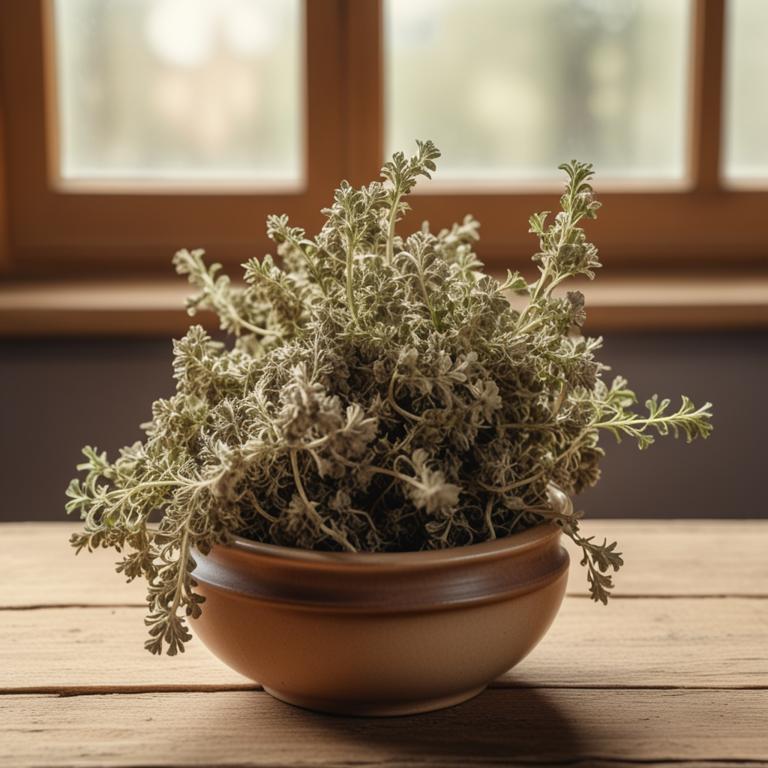
The Complete Guide to Acute Bronchitis: Causes, Medicinal Herbs, and Herbal Preparations
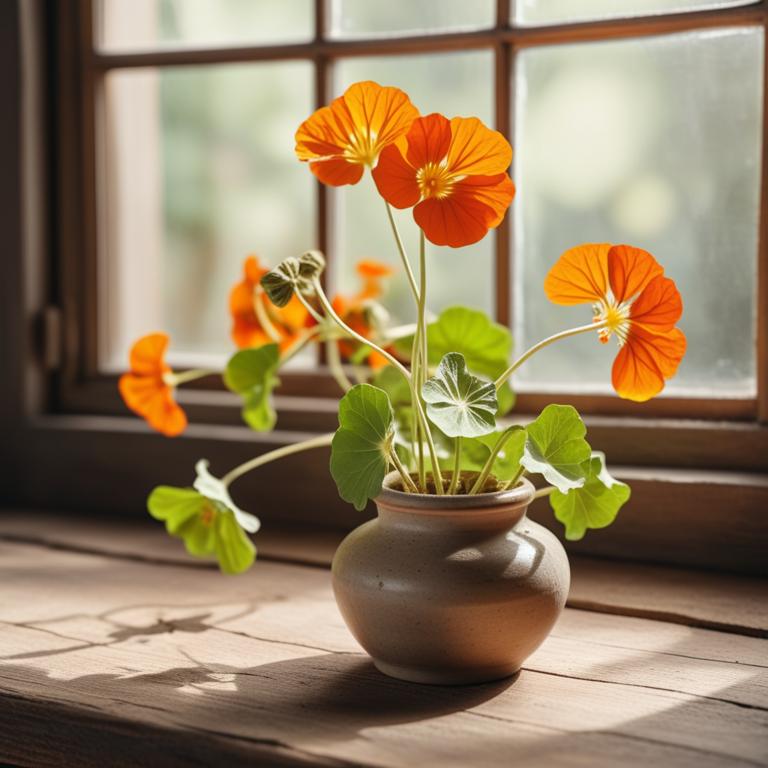
Hay Fever: Causes, Herbal Preparations, and Medicinal Herbs for Relief




